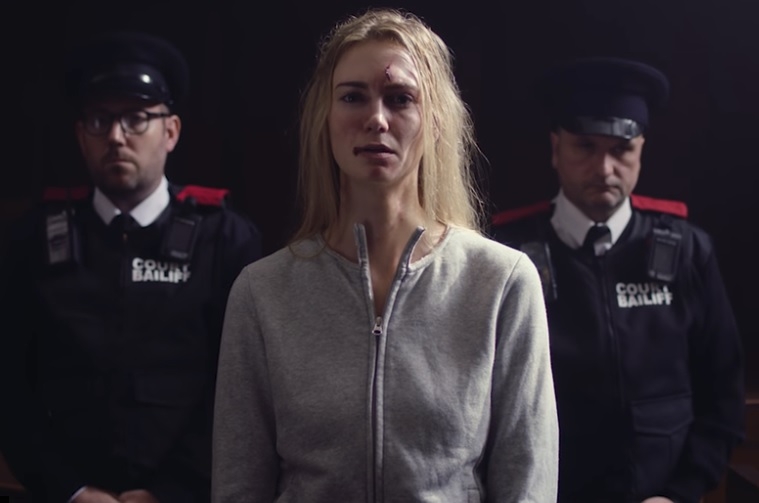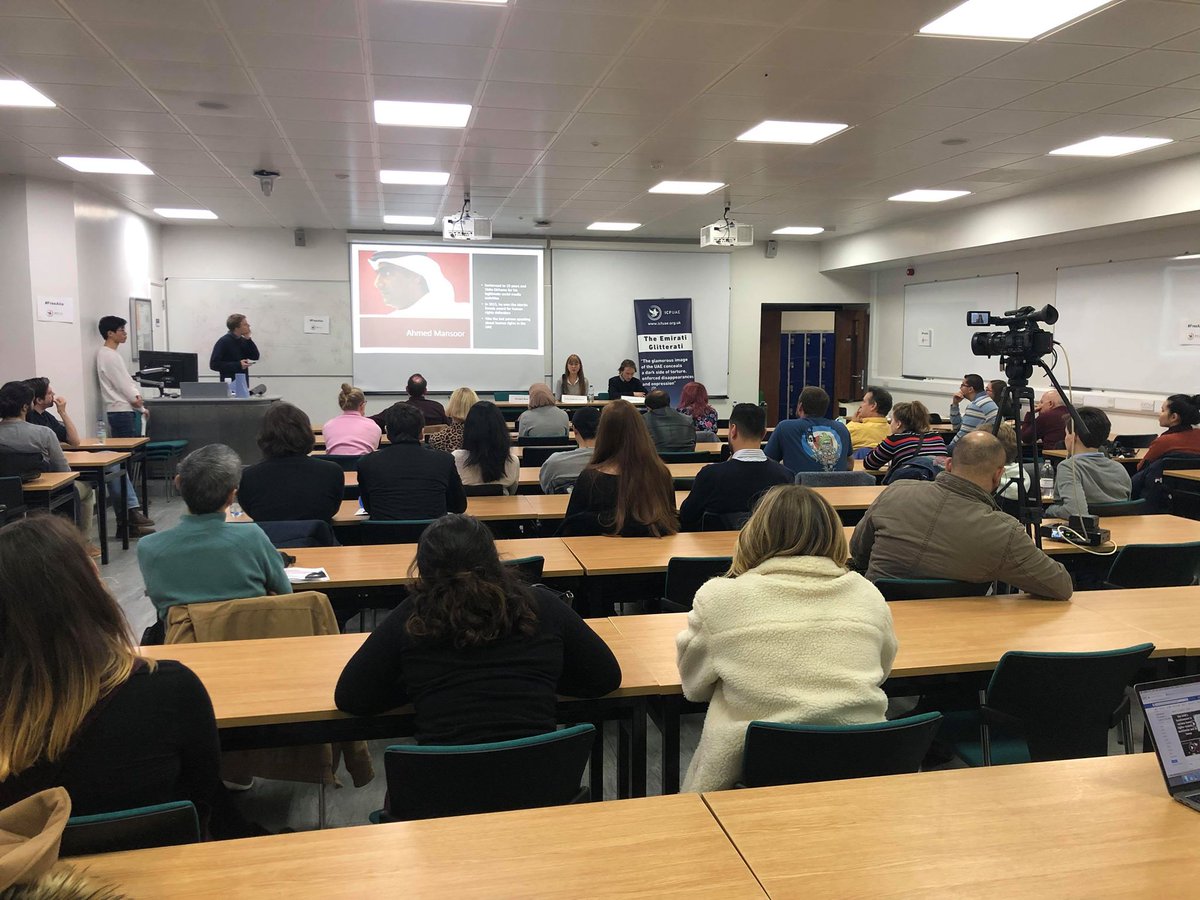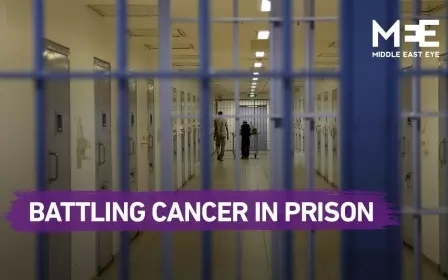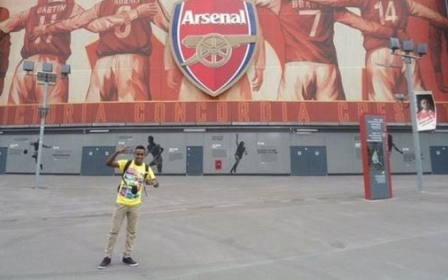She's white, British and jailed for helping Syrians: Film transposes UAE injustice to UK

How to get attention for an Emirati woman being held in Abu Dhabi? Make a film about an English woman imprisoned in London.
That's the thinking behind "Alison", a new film produced by the London-based International Campaign for Freedom in the United Arab Emirates (ICFUAE), which is currently being screened at universities in the UK and is scheduled to be shown at the Human Rights Council in Geneva next month.
Alison, played by Dana Smit, is collecting money for Syrian refugees one day when a group of armed police officers raid the cafe where she's asking for small change. She is thrown to the floor, handcuffed and taken away in the back of a van without explanation.
Four months later, Alison - now covered in bruises and bloody cuts - is charged with fundraising for terrorists after signing a confession under duress, and ordered back to solitary confinement.
A British judge in a wig tells a quivering Alison: "You will be forbidden from seeing your family. You will be frequently blindfolded and handcuffed. Your health will degrade and, as a result, the cancer you beat seven years ago will return."
New MEE newsletter: Jerusalem Dispatch
Sign up to get the latest insights and analysis on Israel-Palestine, alongside Turkey Unpacked and other MEE newsletters
Alison, it turns out, is really Alia Abdel Nour, a 42-year-old Emirati national who is currently serving a 10-year prison sentence in the United Arab Emirates over terrorism charges for raising money online for Syrian women and children.
After her arrest, Nour disappeared for four months and was forced to sign a false confession, campaigners have said.
Her family and rights campaigners say Nour had cancer when she was arrested, but in addition now also has osteoporosis and liver fibrosis and has not had access to sufficient medical care.
The UAE embassy in London did not respond to a request for comment from Middle East Eye.
Authorities have refused to release her on health grounds, say Nour's supporters, so now they are trying to draw attention to her case.
“Unfortunately, in our world - and if you want the UK’s attention, having a white, English character would draw more attention than an Emirati woman," said Sofia Kaltenbrunner, ICFUAE programme officer.
According to the ICFUAE, there are currently over 200 political prisoners in the UAE, which Kaltenbrunner said is one of the highest number of political prisoners per capita in the world. Criticism, she said, is not tolerated in the country, particularly since the Arab uprisings in 2011.
“It’s really important to us to raise awareness on Alia’s case because her condition is so critical. We are essentially calling for her early release on health grounds so that she can die at home.”
The film's release comes soon after the freeing in November of Matthew Hedges, a British PhD student who was imprisoned and held in an Emirati prison for seven months, mostly in solitary confinement, on spying charges.
'We are essentially calling for her early release on health grounds so that she can die at home'
- Sofia Kaltenbrunner, ICFUAE programme officer
Hedges' case sparked tensions between the two long-term allies with several UK universities cutting ties with the UAE, and was followed weeks later by a widely publicised BBC documentary about an Emirati princess' failed attempt to escape her family.
Despite these high-profile cases, the UK international trade secretary is reportedly currently at work on a post-Brexit trade deal with the UAE. Meanwhile, it remains a challenge to draw attention to the plight of Emirati political prisoners, said Kaltenbrunner.
“The UAE has a very glamorous and luxurious image but our end goal is to raise awareness on Alia’s case because it is so urgent. Hopefully, the film can change the perception and can help chip away at the image of the UAE,” she added.
Richard Beer, the film's scriptwriter, told MEE at a recent screening at Imperial College London, that he had been trying to figure out a way to get audiences talking.
“Ultimately, it’s about taking people’s familiar world and breaking it apart slightly… it’s just taking that mentality of ‘oh that would never happen here’ and challenging it by making it something shocking by setting it in the UK."
Juliette Doggett, who played a legal adviser in the film, said that participating in its making had been eye-opening for her.
“It highlighted an issue I wasn’t really aware of. The film is quite relevant and gives an interesting take on what’s happening in the UAE," she said. "Whether it will have an impact, I’m not sure but it was interesting to see”.
Middle East Eye delivers independent and unrivalled coverage and analysis of the Middle East, North Africa and beyond. To learn more about republishing this content and the associated fees, please fill out this form. More about MEE can be found here.





